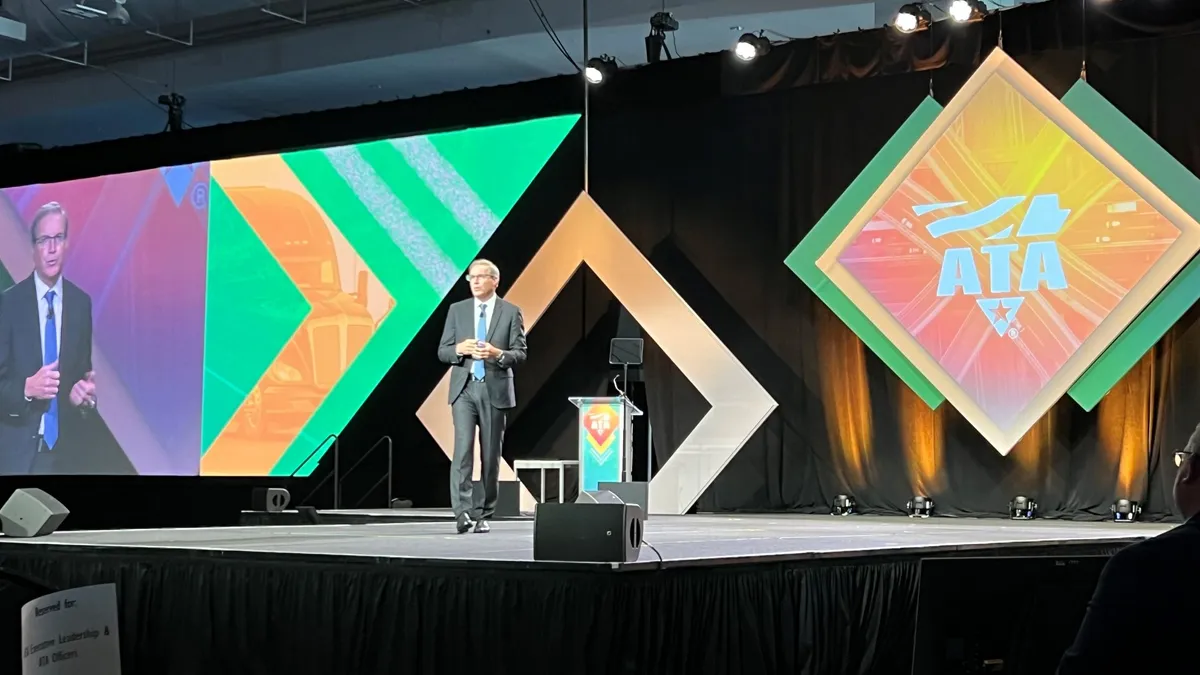Several labor regulations in various stages of development could have wide-ranging effects on the trucking industry this year.
Trucking executives will be focused on the regulatory rules, which are poised to go into effect alongside a separate slate of equipment regulations in 2024.
Independent contractor classifications, meal and rest break requirements, and more training for new drivers are all areas subject to new regulation.
Industry interests shared their insights and opinions on the rules as they plan for the year ahead.
Federal rule on independent contractors
In January 2024, the Labor Department unveiled a shift away from a 2021 process to classify independent contractors.
The government said that will mean a weighted-factor analysis will no longer apply in assessing work relationships but instead, six factors will have equal influence.
For trucking, there are no exemptions, said Truckload Carriers Association Senior VP of Safety and Government Affairs David Heller. But the change, if implemented in March, would aid businesses in their ability to direct safety training of independent contractors working as drivers.
“Previously, it was almost a hands off approach because they wanted to maintain that arm’s length distance between independent contractor and company to make sure that they’re not perceived as employees,” Heller said. “This rule helps clarify that carriers are allowed to address aspects of the Federal Motor Carrier Safety regulations that pertain to these drivers.”
The rule could create complications for how businesses operate. But despite the changes, the federal policy is unlike California’s AB5 law affecting independent contractors because there’s not a B-prong of the ABC test, Heller said.
“The particularly troublesome B prong of that test that says if you’re operating in a business that delivers freight, you can’t basically have an independent contractor deliver freight because you have company drivers doing it,” he said.
Meanwhile, a legal battle against AB5 continues involving the California Trucking Association and the Owner-Operator Independent Drivers Association.
Meal and rest breaks
A push by groups involving the Teamsters seeks to make meal and rest break requirements in California and Washington state apply to truckers.
That’s creating conflict over federal regulations, which the Federal Motor Carrier Safety Administration has ruled preempt state laws.
“If they reverse this, truckers could increasingly face having to comply with state rules,” said Joe Rajkovacz, director of governmental affairs and communications for the Western States Trucking Association. “The last thing you want is crossing a state line and seeing what your new requirements are.”
The Truckload Carriers Association previously noted its opposition toward changing the federal rules in place. Heller said a patchwork of rules is probably not the best idea.
FMCSA is asking for comments on the matter through Feb. 26, 2024.
Broker transaction transparency
A notice of proposed rulemaking is slated for October that could lead to more broker regulations, following concerns by OOIDA and the Small Business in Transportation Coalition.
OOIDA wanted the government to rule that brokers must send transactional information electronically within 48 hours and prevent brokers from delaying the release of transactional information, OOIDA Director of Federal Affairs Jay Grimes said.
“We’ve seen various loopholes and measures that brokers take to really make sure motor carriers cannot access that information,” he said. “We would love to see, you know, the provisions that we petitioned for. I think [it] could be more of an informational proposal to try and gather some more feedback.”
Safety and training
OOIDA Director of Communications George O’Connor hopes that FMCSA can adopt some recommendations to strengthen new driver training to ensure entry-level workers are operating equipment safely.
ATA Senior VP of Regulatory Affairs and Safety Policy Dan Horvath said the rulemaking will propose a few measures but also ask industry what else it should be doing.
“DOT wants to look at the curriculum itself and see if there’s ways to enhance,” Horvath said. “What’s on the agenda currently looks at adding additional curriculum requirements to the process.”
Horvath said the rulemaking will propose a few measures but also ask industry what else it should be doing.
FMCSA said in a regulatory outlook that it will seek input from stakeholders about ways to improve the safety of women drivers and trainers and “address the negative impacts of workplace sexual harassment.”





















